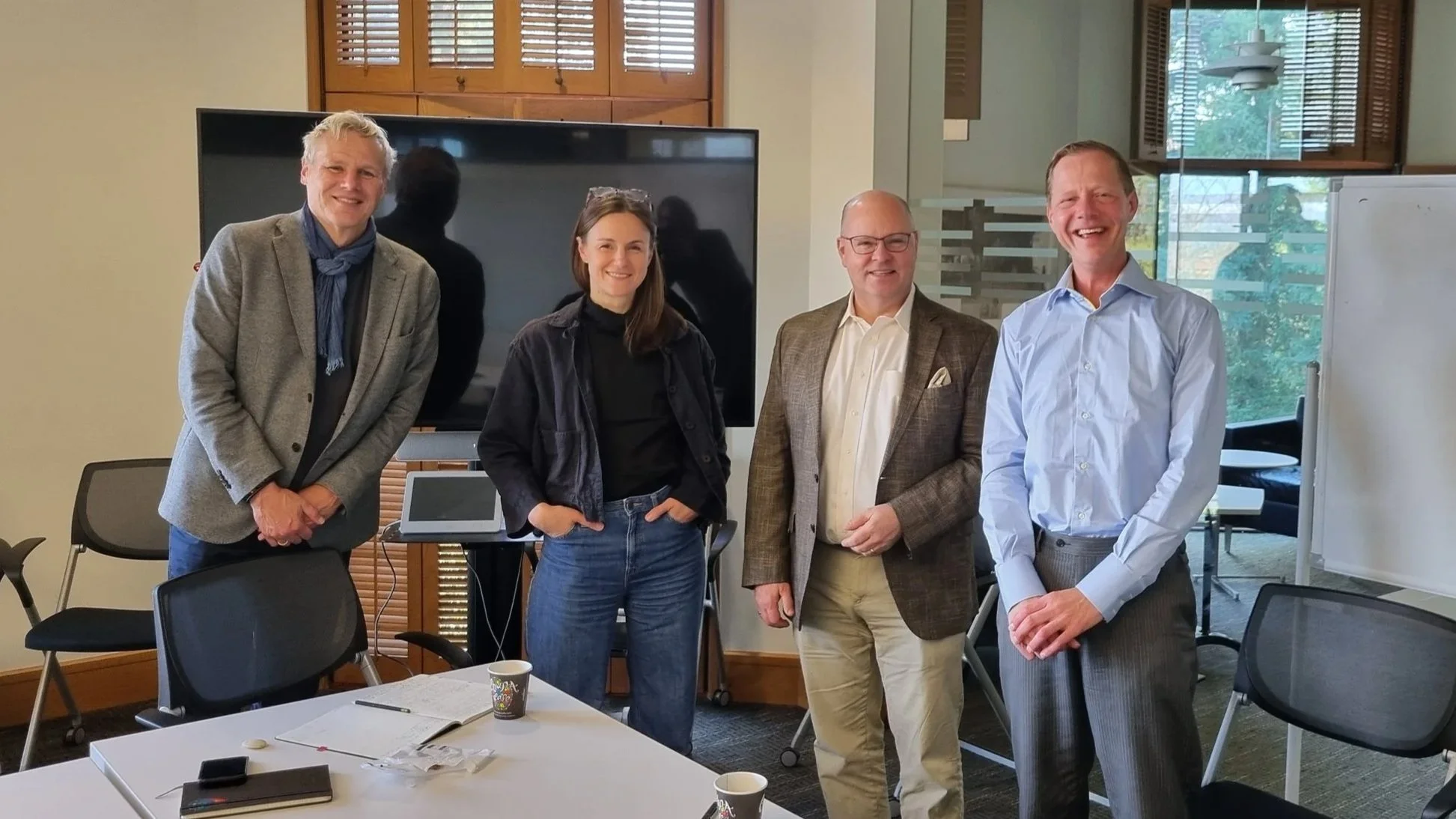Stanford, CA May 5, 2025 — Today, Mauritz Kop published interdisciplinary research proposing “A Principled Approach to Quantum Technologies”, and the establishment of an “Atomic Agency for Quantum-AI” on the website of the European Commission. The Atomic Agency essay analyzes emerging AI and quantum technology (including their increasing complementarity and interdependence embodied in quantum-AI hybrids) regulation, export controls, and technical standards in the U.S., EU, and China, comparing legislative efforts anno 2025 to strategically balance the benefits and risks of these transformative technologies through the lens of their distinct innovation systems. The Principled Approach paper posits that quantum technology's dual use character brings with it the need to balance maximizing benefits with mitigating risks. In this spirit, the paper argues that quantum technology development should best be guided by a framework for Responsible Quantum Technology, operationalized by a set of tailored principles to optimize risk-benefit curves. Download the paper here.
Towards an Atomic Agency for Quantum-AI
The article analyzes emerging regulation, export controls, and technical standards for both quantum and AI (including their increasing complementarity and interdependence embodied in quantum-AI hybrids) in the U.S., EU, and China and offers novel conceptual frameworks to steward these technologies towards shared global benefit.
Key Takeaways:
1. Converging Need for Responsible Governance: Despite distinct innovation philosophies (market-driven in the U.S., values-based in the EU, and state-driven in China), there's a growing international consensus on the necessity for principled and responsible technology governance for both AI and quantum technologies.
2. The 'Washington Effect' vs. 'Beijing Effect': The U.S.'s security-centric policies are creating a de facto "Washington effect," potentially setting global rules for quantum law but risking premature regulation. Conversely, China's push for state-aligned standardization (e.g., via the Digital Silk Road) signals a "Beijing effect," which could export autocratic norms and fragment global interoperability, a trend exacerbated by unilateral export controls.
3. Potential U.S., EU and China Visions on a Quantum Governance Act: Given the distinct innovation ecosystems and strategic priorities of the United States, the European Union, and China, it is instructive to envision how each might hypothetically structure a dedicated legislative framework for quantum technologies. The research outlines hypothetical "Quantum Governance Acts" for each, reflecting their respective governance philosophies and innovation models, while also considering pathways towards greater international alignment based on shared values:
a. United States: Removing Barriers for U.S. Quantum Technology Act (deregulation, industrial standards-centric approach, Safeguarding through Advancing quantum technology, prioritizing market dynamism, national & economic security, and defense).
b. European Union: EU Quantum Act (harmonized regulation rooted in fundamental rights and societal benefit based on New Legislative Framework while incorporating elements from European Chips Act, renewed focus on defense via “European DARPA”).
c. China: Comprehensive Quantum Law (Safeguarding state control while Advancing state goals, blending elements of authoritarian governance with surveillance capitalism, integration of civilian and military sectors, self-reliance, exporting state norms & values through technical standards).
4. Global Challenges & Opportunities for Alignment: Faced with planetary challenges like disease, inequality and climate change, aligning on Responsible Quantum Technology (RQT) norms and standards is a critical global opportunity. The article cautions against a simplistic zero-sum game or Cold-War redux narrative for quantum competition, arguing it hinders vital international cooperation.
5. Quantum-Relativistic Innovation Theory of Everything: Philosophical thought experiment to understand innovation dynamics by drawing analogies from quantum mechanics (uncertainty, superposition at micro-level) and general relativity (context, structure at macro-level), theories about the fundamental nature of reality.
6. Smart Regulation and RQT by Design: Effective governance must move beyond mere restrictions to actively incentivize responsible behaviors, promoting "Responsible Quantum Technology (RQT) by design" through flexible instruments like Quantum Impact Assessments (QIA), RQT by design metrics, adaptive, modular legislation, & regulatory sandboxes.
7. Harmonized "Quantum Acquis Planétaire": The article advocates for a global body of Quantum Law ("Quantum Acquis Planétaire"), complemented by sector-specific practices. Such a quantum acquis would be anchored in universal ethical values and translated into foundational standards and agile legal guardrails. This requires inter-continental policymaking and strategic "recoupling" between major players like the U.S. and China, based on incentives and shared values (“what connects us” – e.g. human dignity, security, well-being).
8. An "Atomic Agency for Quantum-AI": A central proposal is the establishment of an international agency modeled after the International Atomic Energy Agency (IAEA). This body would aim to enforce a global acquis, deter a quantum arms race, ensure non-proliferation of dual-use quantum-AI technologies via safeguards implementation (inspired by nuclear governance), and potentially oversee a global UN Quantum Treaty.
9. Need for International Collaboration & Research Platforms: Realizing ambitious goals like fault-tolerant quantum centric supercomputing, and scalable topological qudits unlocking higher-dimensional quantum systems leveraging multi-level logic, requires collective global expertise and collaborative research platforms akin to CERN or ITER, challenging protectionist measures that stifle necessary cooperation. Immediate global actions should focus on leveraging quantum for the UN Sustainable Development Goals (SDGs), mitigating a 'Quantum Divide,' promoting quantum literacy, and building a skilled quantum workforce.
The research underscores the urgent need for robust global quantum-AI governance structures and calls for a shift from purely competitive dynamics towards pragmatic cooperation and the codification of a harmonized global framework.
Meer lezen



